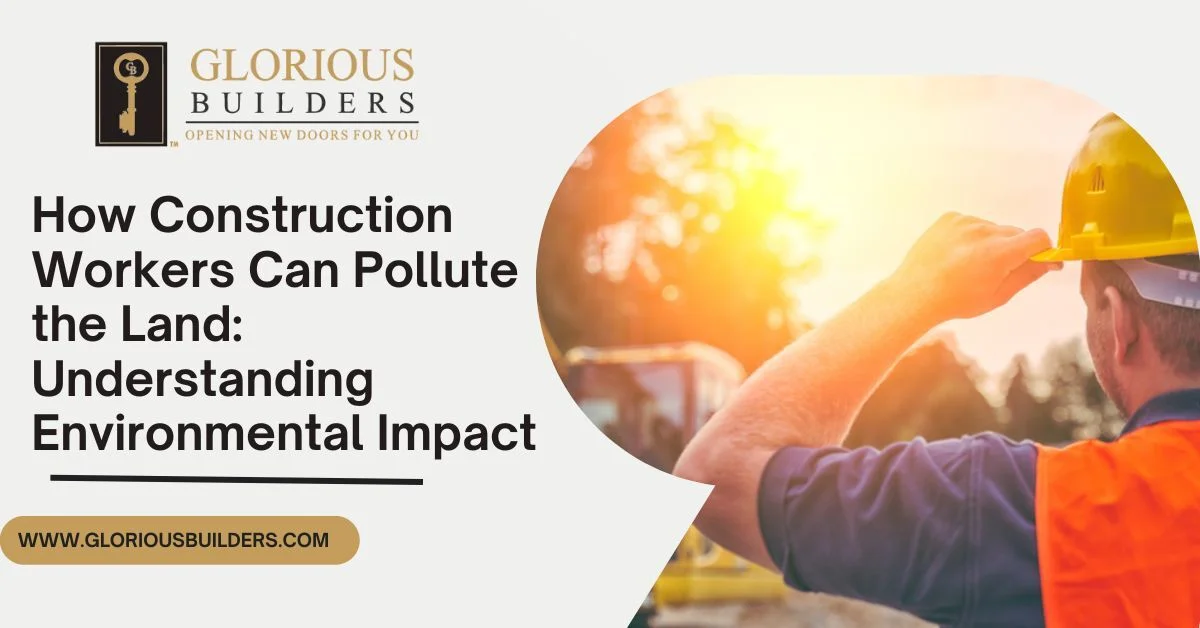How Construction Workers Can Pollute the Land Understanding Environmental Impact
Construction is a vital industry that shapes our cities and landscapes, creating the buildings and infrastructure that enable modern life. However, like any human activity, construction can hurt the environment, particularly the land. Construction workers, through various practices and processes, can inadvertently contribute to land pollution. In this article, we’ll explore how construction activities can lead to land pollution and discuss potential solutions to mitigate these impacts.
Introduction
Construction projects involve various activities that can disturb the natural landscape and potentially introduce pollutants into the environment. While construction is essential for progress, it’s crucial to recognize the potential for environmental harm and take proactive steps to minimize it.
Causes of Land Pollution in Construction
Improper Waste Disposal
One of the significant contributors to land pollution in construction is improper waste disposal. Construction sites generate a substantial amount of waste, including materials such as concrete, wood, plastics, and hazardous substances. If not managed correctly, these materials can leach harmful chemicals into the soil, contaminating the land.
Soil Erosion and Sedimentation
Construction often involves earthmoving activities, which can lead to soil erosion and sedimentation. When soil is disturbed without proper erosion control measures, it can be washed away by rainwater, ending up in nearby water bodies. This sedimentation not only disrupts aquatic ecosystems but also contributes to land degradation.
Chemical Contamination
Construction materials and processes can introduce chemicals into the land. For example, the use of certain paints, solvents, and sealants can release toxic substances into the soil. Spills of construction chemicals, such as fuels and lubricants, can also lead to soil contamination if not promptly addressed.
Impacts of Land Pollution
Soil Degradation
Land pollution can degrade the quality of soil, making it less fertile and suitable for agriculture. Contaminants from construction workers’ activities can alter soil pH, nutrient composition, and microbial activity, impacting plant growth and overall ecosystem health.
Water Contamination
Pollutants from construction sites can migrate through the soil and reach groundwater reserves. This contamination not only affects the availability of clean drinking water but also poses a threat to aquatic life and ecosystems downstream.
Impact on Biodiversity
Land pollution can disrupt habitats and negatively impact wildlife. Chemical pollutants can harm plants, animals, and microorganisms, leading to reduced biodiversity and potentially causing long-term ecological imbalances.
Ways to Minimize Construction-Related Land Pollution
Proper Waste Management
Effective waste management is essential to prevent land pollution. Construction companies in Lahore should implement strategies to sort, recycle, and dispose of waste materials responsibly. Hazardous substances should be stored and handled according to regulations to prevent leaks and spills.
Sediment and Erosion Control
To prevent soil erosion and sedimentation, construction sites should implement erosion control measures. Installing silt fences, using straw bales, and establishing vegetative cover can help prevent soil from being washed away during rainfall.
Sustainable Construction Practices
Adopting sustainable construction practices can significantly reduce the environmental impact of construction projects. This includes using eco-friendly materials, minimizing energy consumption, and designing buildings with longevity and energy efficiency in mind.
Conclusion
Construction activities, while necessary, can contribute to land pollution if not managed responsibly. By understanding the causes and consequences of construction-related land pollution, we can work towards more sustainable and environmentally friendly construction materials prices in Pakistan. Through proper waste management, erosion control, and the adoption of sustainable construction methods, we can minimize the negative impact of construction workers on our precious land resources.
Frequently Asked Questions (FAQs)
How does construction waste contribute to land pollution?
Construction waste, if not properly managed, can release harmful chemicals into the soil, leading to contamination and degradation of land quality.
What are some eco-friendly construction materials?
Eco-friendly construction materials include recycled steel, bamboo, reclaimed wood, and low-emission concrete.
What role does government regulation play in reducing construction-related land pollution?
Government regulations set standards for waste management, pollution prevention, and environmental protection on construction sites, helping to mitigate land pollution.
How can construction companies promote environmental responsibility?
Construction companies can promote environmental responsibility by implementing sustainable practices, training workers on proper waste disposal, and adhering to relevant environmental regulations.




